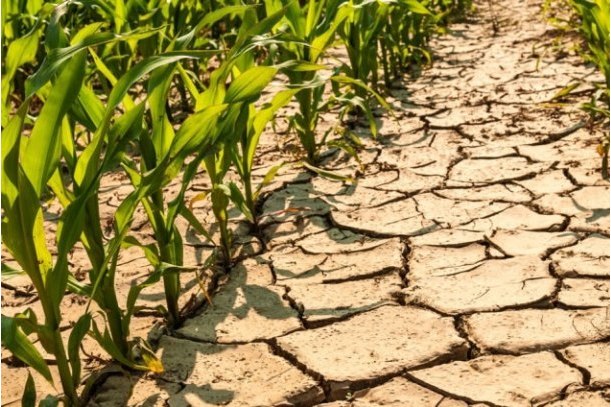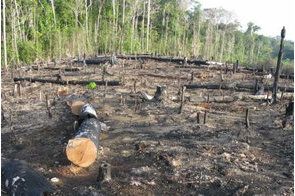Climate change threatens global food supply – UN report

Summary
The report shows that sustainable land management can help reduce the effects of climate change and in some cases reverse these adverse impacts.
The Intergovernmental Panel on Climate Change (IPCC), the United Nations body for assessing the science related to climate change, released a new report on Thursday showing that desertification and land degradation exacerbate climate change. Climate change in turn exacerbates land degradation, which affects food output for the world’s expanding population.
The report, called "Climate Change and Land, an IPCC special report on climate change, desertification, land degradation, sustainable land management, food security, and greenhouse gas fluxes in terrestrial ecosystems," shows that poor land use is behind almost a quarter of the planet’s greenhouse gas (GHG) emissions. Key factors in poor land use include destruction of forests, huge cattle herds and overuse of chemical fertilisers.
The report shows that better or sustainable land management can help reduce the effects of climate change and in some cases reverse these adverse impacts. The IPCC said reducing greenhouse gas emissions from all sectors is essential if the world must achieve the goal of limiting increase in global average temperatures to 2 degrees Celsius (°C) or 3.6 degrees Fahrenheit (°F), if not 1.5°C above pre-industrial levels by the end of the century.
“Land plays an important role in the climate system,” said Jim Skea, Co-Chair of IPCC Working Group III, the group that deals with the mitigation of climate change. “Agriculture, forestry and other types of land use account for 23% of human greenhouse gas emissions. At the same time natural land processes absorb carbon dioxide equivalent to almost a third of carbon dioxide emissions from fossil fuels and industry.”
The IPCC said land must remain productive to maintain food security as the population increases and the negative impacts of climate change on vegetation increase. The authors said the cultivation of energy crops and afforestation should be considered but there are limits to them, especially since it takes time for trees and soils to store carbon effectively. Bioenergy needs to be carefully managed to avoid risks to food security, biodiversity and land degradation. The UN said desirable outcomes will depend on locally appropriate policies and governance systems.
The report also shows that food security will be more affected by future climate change in Africa and other developing countries. Priyadarshi Shukla, Co-Chair of IPCC Working Group III, said “We will see different effects in different countries, but there will be more drastic impacts on low-income countries in Africa, Asia, Latin America and the Caribbean.”
The report has called for reduction in over-consumption, which would entail low population growth. Sustainability, according to the report, would also entail improved nutrition and lower food waste. It also entails eliminating the clearing and burning of forests, reducing inequalities and improving incomes of disadvantaged populations.
The report also recommends strong action from governments and businesses, including ending deforestation and promoting reforestation. It also calls on governments to reform agricultural subsidies, support smallholder farmers and breed more resilient crops.
Related
-
World Bank unveils $16 billion Africa Climate Business Plan
Of the $16.1 billion that the ambitious plan proposes for fast-tracking climate adaptation, $5.7 billion is expected from ...
-
Avoiding a climate lockdown
Global warming will cause drinking water to degrade and enable pollution-linked respiratory diseases to thrive.
-
Group advocates for progress on UN-REDD programme in Nigeria
The UN-REDD programme assists countries to develop the capacities needed to meet the requirements for carbon offsets, and ...










